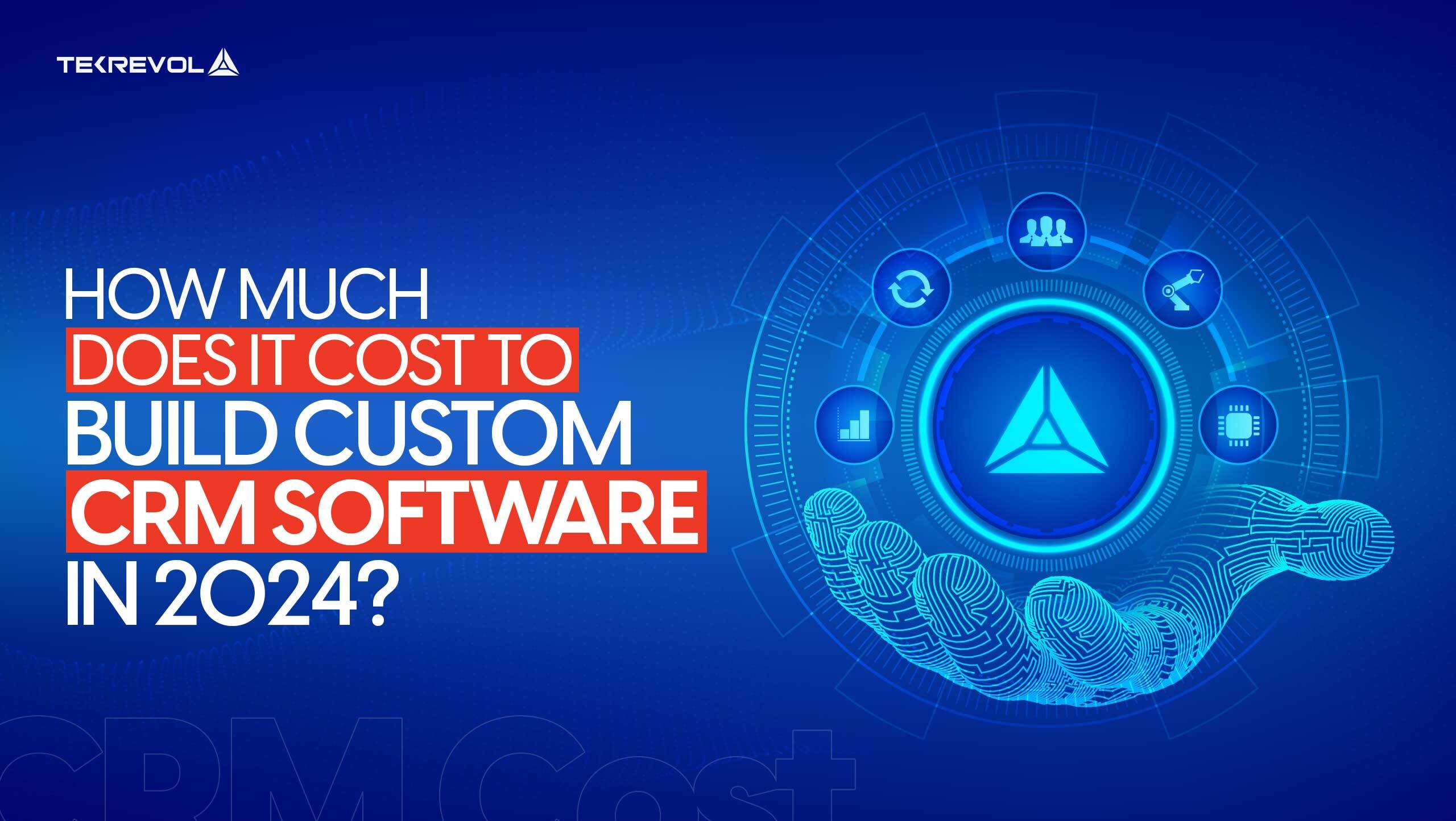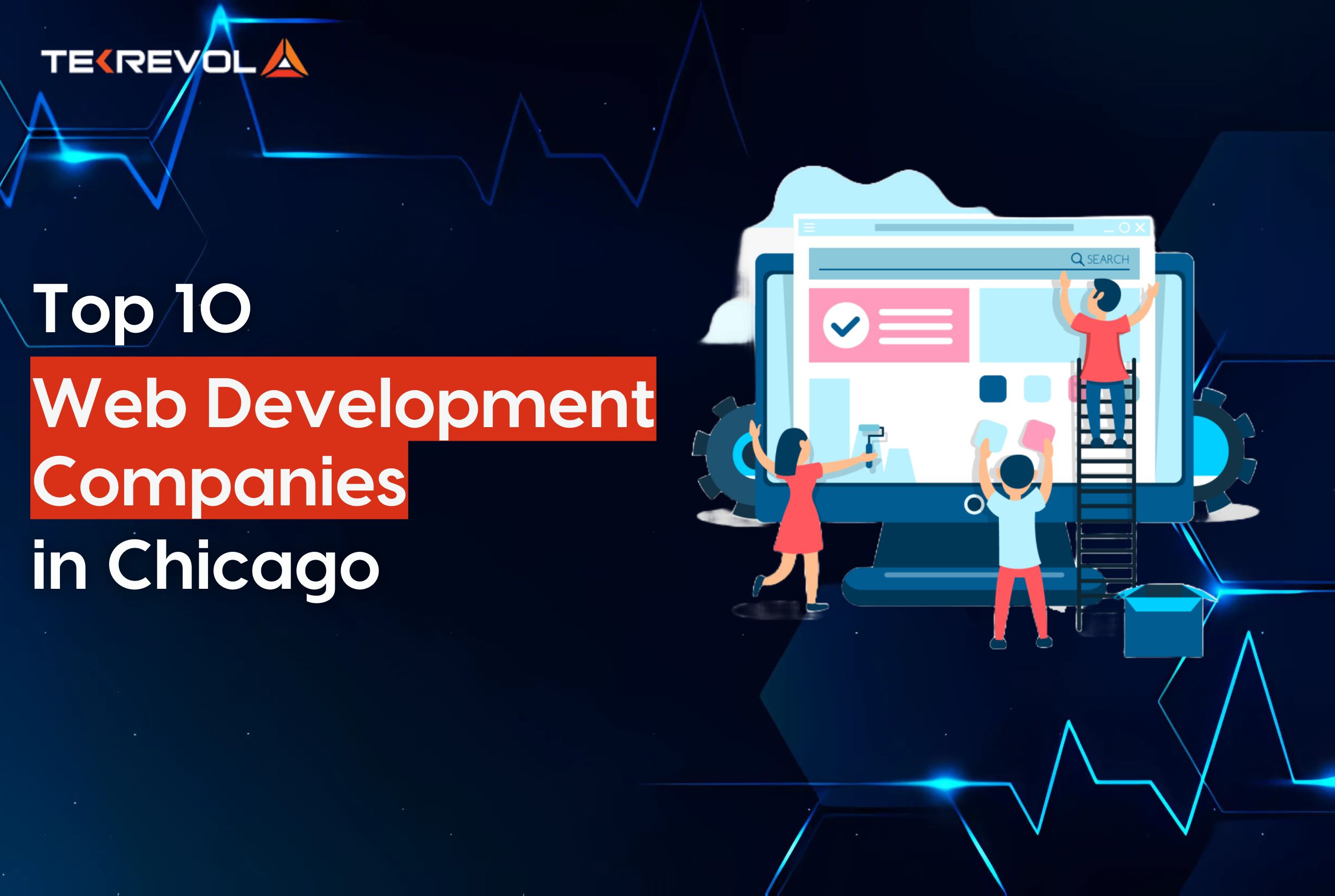Companies around the world are increasingly relying on custom CRM software to increase the efficiency of internal processes, drive business growth, and improve their overall services.
The ability to achieve the above-mentioned aspects is a by-product of proficiently collecting, analyzing, and leveraging business data.
This is what makes CRMs unique as they can serve as a marketing and sales data center for businesses, allowing companies to make informed, strategic, and lucrative decisions.
Since data is being used by companies around the globe to drive business growth, CRMs can become the primary source of valuable data for nearly all sorts of companies.
After gauging the viability of CRMs for businesses, the very obvious thought comes to every entrepreneur’s mind which is, ‘whether we should build a custom CRM or simply buy one from a custom CRM development company?
This decision to build custom CRM software or opt for an off-the-shelf solution is critical for modern and advanced businesses. However, a comprehensive analysis of a pre-built CRM software cost Vs. custom CRM development is integral to ensure effective decision-making.
Custom CRM development is a significant investment, influenced by various factors including the complexity of features, the choice of technology, and the expertise required. Whereas a ready-made custom CRM allows companies to share their requirements and let the vendor customize their CRM solution for them.
This blog provides a comprehensive analysis of the costs of a custom CRM, the factors influencing these costs, and strategies to manage and reduce expenses. We’ll also explore the benefits and drawbacks of developing custom CRM systems, helping businesses navigate their options and make strategic choices for their future.
Whether you are a small business or a large enterprise, this guide will provide you with the guidance that you need to understand the financial aspects, benefits, pros, cons, and much more of getting custom CRM development to ensure smarter, more productive business operations.
Factors That Significantly Influence Custom CRM Development
The cost of developing custom CRM software is affected by several factors.
We’ve included a highly researched analysis of the factors that influence the cost of CRM to give businesses a robust idea of what they can expect while getting a custom CRM built.
Understanding these elements is essential for estimating and managing the budget effectively.
1. Scalability Requirements
The ability to scale the CRM system to accommodate business growth affects the development cost. Scalable solutions require robust architecture and more extensive planning, which can increase initial expenses but offer long-term benefits.
2. Complexity and Features
The complexity of the CRM system and the range of features it includes are primary cost drivers. Basic CRMs with essential functionalities like contact management and task automation are less expensive than complex systems with advanced analytics, AI integrations, and automated workflows.
3. Technology Stack
The technologies and tools used in the development of the CMR also influence the costs of CRM development. Using advanced technologies can enhance the CRM’s capabilities but may also increase the price due to licensing fees, and customizations and you’ll need specialized skills to get this done.
4. Development Team and Expertise
The choice of the development team, whether in-house or outsourced, and their expertise significantly impact the cost. Developers in regions like the U.S. or Western Europe typically charge higher rates compared to those in regions like Eastern Europe or Asia, affecting your overall custom CRM development cost.
5. Integration with Internal Systems
Integrating CRM with existing business systems (e.g., ERP, marketing automation tools, or expense management software) can be challenging and costly. For seamless integration, careful planning and additional development efforts will be required. This would affect the CRM development cost.
6. Ongoing Maintenance
CRM systems require continuous maintenance, updates, and support. These ongoing costs are crucial for ensuring the system’s efficiency and effectiveness amid changing business requirements.
- Transform Your Customer Management Model
- Enhance your business with our cutting-edge CRM development services designed for growth.
Analyzing the Cost of Developing Custom CRM for Various Types of Businesses
The cost of developing custom CRM software varies depending on the complexity of the CRM that you’re developing. Additionally, the cost of developing CRM is increased or decreased with what we like to call the ‘3S’ – Size, Scale & Suitability.
For instance, a CRM for a small business would cost less compared to what an SMB or a multinational organization would have to pay to get a CRM developed.
This difference in the cost of CRM is primarily due to the fact that the requirements of businesses vary from organization to organization. However, with the scalability factor intact, startups can leverage a scalable CRM, eventually expanding its functionality and features as they climb the ladder to becoming a multinational brand.
Here’s a breakdown of the cost that businesses of different sizes would have to pay to get custom CRM development:
1. Small Business Custom CRM:
Small businesses often require a CRM that is tailored to their specific needs without extensive features.
This is the reason why the development CRM system for small businesses would cost way less as compared to what an enterprise would have to pay.
The costs range from $25,000 to $40,000, with development time ranging from a few weeks to a few months.
Such CRMs include features such as scheduling, online payments, collaboration and communication functionality, and basic-level client management.
The MVP-like state of such CRMS makes them ideal for small businesses looking to enhance their customer management without investing a lot of money.
- Time: A few weeks to a couple of months.
- Budget: $25,000 – $40,000.
- Features: Basic features such as scheduling, online payment systems, automated email and alerts client data integration, and management and more.
2. SMB-Level Custom CRM Development
Standard or small-to-midsize businesses (SMBs) with more complex needs compared to a startup would need a standard custom CRM that is designed specifically to address their internal challenges.
The development process for a custom CRM for SMBs consists of several months. The timeline, however, can extend to even a year. The budget for such CRMs ranges from $100,000 to $150,000.
This cost estimate is based on the average per-hour rate of CRM developers of $35 to $40. This is also the reason why businesses prefer to outsource their CRM development to companies.
This helps them to save costs, expedite the process of CRM development, and get experienced professionals to work on their CRM, minimizing the challenges that are involved in taking the DIY approach to developing custom CRMs.
Moreover, a CRM for an SMB would include features like sales enablement and tracking, basic data analytics, dashboard and reporting capabilities, and similar other features.
It’s important to note that costs can escalate if developers from the US, UK, or Canada are hired for CRM development. In the regions mentioned earlier, the per-hour cost of CRM development of developers can reach $70 to $100.
The cost estimate above is based on an average hourly rate of developers that can be higher in regions that generally have more expensive labor costs. However, the rate may also vary depending on the experience and expertise of the team that you’ve hired for the CRM development.
- Time: 6+ months to a year.
- Budget: Ranges from $100,000 to $150,000.
- Features: Specific features such as Contact management, sales enablement tracking, sales and marketing analytics.
3. High-End & Custom CRM Development Cost
This CRM development is specifically what large enterprises and multinationals are looking for. Such companies have very high-end requirements and demands therefore, complex custom CRM systems are required to help them overcome their challenges.
High-end and custom CRMS provide highly advanced features such as AI-powered analytics, automation capabilities that reduce significant amounts of time, and effort and eliminate manual laborious work, and extensive integration capabilities for operations or data centralization.
Developing such a high-end CRM is a lengthy and time-consuming process that extends over several months to 1.5 years and can cost up to $700,000 or more.
Furthermore, to develop such a custom CRM with distinctive features, a specialized team of developers, designers, project managers, and technology experts is required. This also increases the cost of high-end CRM development.
However, despite the high cost, the high-end, custom CRMs provide long-term advantages to brands, supporting their business processes, multiplying efficiency, allowing them to augment decision-making, and more.
- Time: 8+ months to 1.5 years or more.
- Budget: $700,000+.
- Features: Advanced features such as AI integration, analytical capabilities, advanced automation, and complete customization.
These projects often require teams that have years of experience in developing robust custom and high-end CRMs. Hence, it’s better to get in touch with a custom CRM development company for a project of this magnitude and complexity.
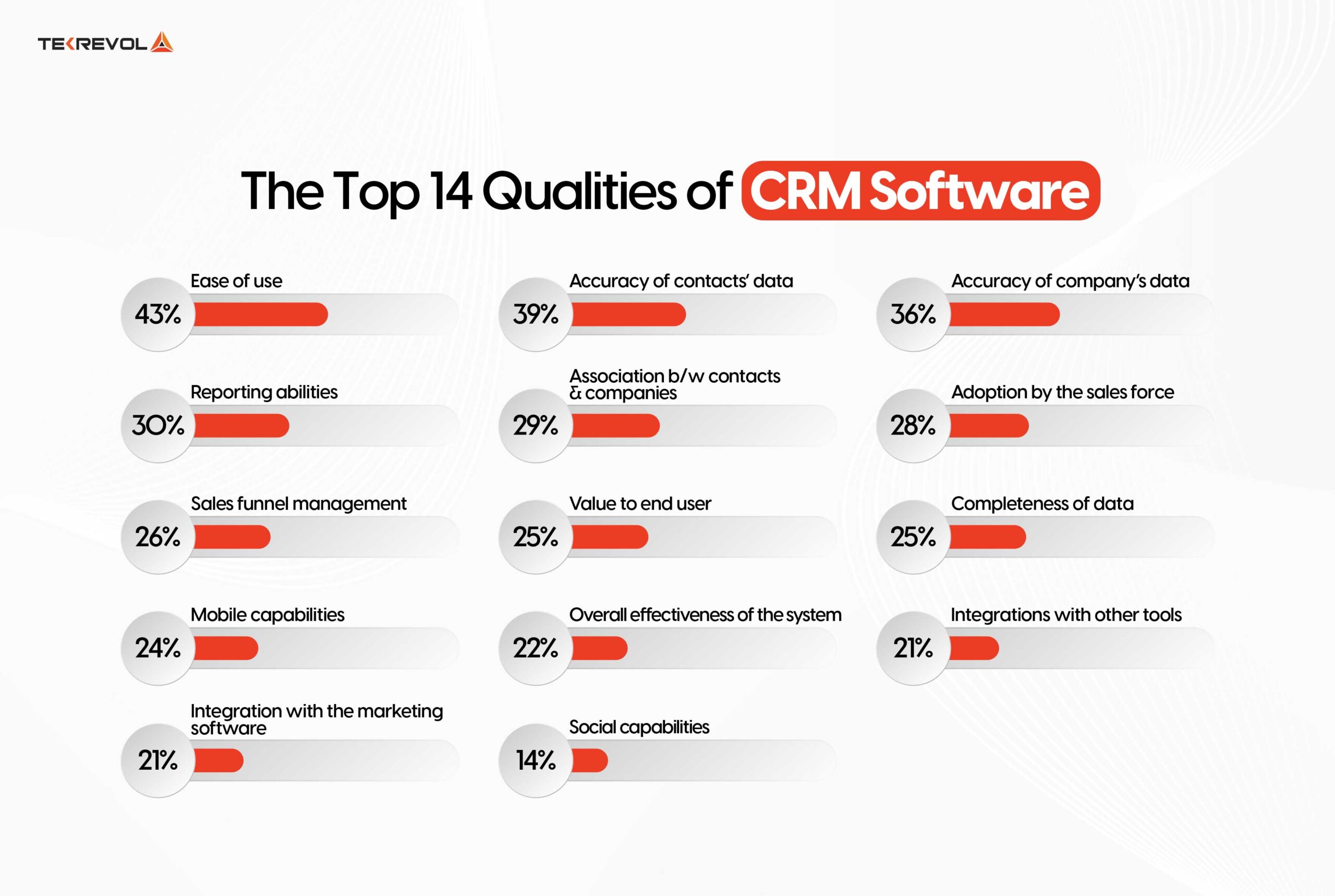
How Much Does It Cost to Build a CRM System Cost Effectively
Building a custom CRM system can cost a fortune however, it doesn’t have to be. With the right approach and the right CRM development team, companies can streamline and minimize the costs involved in developing custom CRM.
Leveraging strategic planning and best CRM development practices, companies can create a custom CRM that fits their budget while still meeting their unique demands.
Here are a few strategies that you can think of in order to manage and reduce custom CRM development costs:
1. Outsource To A Cost-Effective Region
Leveraging global talent pools can significantly cut CRM development costs. Countries like India, Pakistan, Ukraine, and the Philippines offer skilled developers at lower rates.
However, you would have to ensure that the team has strong English communication skills that can facilitate smooth collaboration.
2. Scrutiny of CRM Development Portfolios
Thoroughly examining potential CRM development firms’ portfolios helps ensure quality.
Evaluate their past CRM projects, what feedback was provided regarding their service, and what is the pace of their deliverables. This will enable you to gauge their reliability and expertise.
3. Start with an MVP
Starting with a Minimum Viable Product (MVP) can save costs.
Launch a CRM system with only the most crucial features and progressively add advanced functionalities to upgrade the CRM over time.
This approach manages initial costs and allows for feature refinement based on real-time feedback and experience.
4. Reuse and Recycle Existing Tools
Instead of developing everything from scratch such as an expense or task management software, integrate existing tools and software that fulfill some CRM functions together to save both, time and money.
5. Prioritize Open-Source Technologies
Using open-source platforms or tools can reduce licensing costs.
You’ll find several community-driven platforms often have robust security and regular feature enhancements and the best part, is they’re open-source which means you don’t necessarily have to pay to utilize their components.
6. Leverage Feedback for Continual Improvement
Involve end-users early on and often in the development process. In this way, you’ll start getting regular feedback at a very early stage. This would enable you to minimize the potential challenges, problems, or unnecessary features before they can be developed and integrated into your CRM, costing you more than what you expected.
7. Clear Scope and Documentation
Clearly outline the project’s scope and document every requirement before development begins. You need to pull this activity off comprehensively and with accuracy to eliminate scope creep, which can lead to increased costs and development time.
8. Agile Development Methodologies
Utilize modern development methodologies such as the agile development methodologies which allow for iterative progress and flexibility in adapting to changes amid and post-development of the CRM. It also ensures efficient use of resources and time.
9. Cloud-Based CRM Development
Opting for cloud-based CRM solutions can reduce infrastructure costs and provide scalable resources as needed, ensuring cost-effectiveness. This means that you can scale up your CRM when you need bandwidth and scale down whenever you want to save costs.
10. Training and Support
Plan to get training and support to ensure smooth internal user adoption of the newly developed CRM and minimize downtime, which can otherwise result in hidden costs.
After addressing how you can ensure cost-effectiveness while building a custom CRM system, it is essential to understand the implications of this decision from a macro perspective. Let’s explore the pros and cons of developing a custom CRM below.
Pros of Developing Custom-Built CRM Systems
Developing a custom CRM system offers several advantages to businesses. Some of these are:
1. Precision in Meeting Unique Business Demands
Custom CRMs are designed to align perfectly with unique business processes and goals. Every feature is crafted to meet specific needs, offering a level of customization that off-the-shelf solutions can’t match without core customization.
2. Amplified Efficiency and Enhanced Productivity
By automating routine tasks, custom CRMs reduce manual efforts, significantly boosting team productivity and enhancing the quality of customer service.
3. Scalability Synced with Business Growth
Custom CRMs can be scaled as the business grows. This means that your CRM will always be able to provide what your business needs to ensure smooth and effective operations. Moreover, new features can be added, and existing ones expanded, ensuring the system evolves with the business.
4. Crafting a Competitive Edge
Custom CRMs allow businesses to introduce innovative features and processes, providing a competitive advantage by offering unique functionalities that competitors may lack.
5. Uncompromised Data Security & Compliance
Custom CRMs provide greater control over the security of your data. They ensure that sensitive customer data is protected and your data protection capabilities are in compliance with applicable rules and regulations.
6. Seamless System Integration
Custom CRMs can be designed to integrate seamlessly with existing business tools and platforms, ensuring smooth operations and efficient workflows.
Cons of Developing a Custom CRM System
Just like in any other case, while there are pros to developing custom CRMs, there are some drawbacks too which I believe you should know about:
1. Significant Upfront Financial Investment
Custom CRMs require a high-end initial investment, often higher than off-the-shelf solutions, which can be a deal-breaker for some businesses. However, with the strategies and best practices mentioned above, you can reduce the cost of CRM development significantly.
2. Extended Time to Market
Developing a custom CRM is a time-consuming process that involves strategic planning, high-end design, robust development, and more. All of this adds up to the go-to-market (GTM) time.
3. Recurring Maintenance is an Imperative
Ongoing maintenance, updates, and support are necessary, adding to the long-term costs and resource requirements.
4. Need for CRM-Specific Talent
Custom CRMs require a team of highly talented professionals equipped with specialized knowledge of developing robust CRMs. This can prove to be costly and time-consuming to recruit and retain for several businesses.
5. The Complexity Challenge
Over-engineering the CRM can lead to the development of a CRM system with unnecessary features, increasing costs and making the system less user-friendly and even ineffective in some cases.
The idea is to feature pack it and not feature bloat it which would eventually diminish the psychological value of the CRM, rendering it useless in some areas of the business.
6. Restricted Access to Third-party Innovations
Custom CRMs might lack the extensive third-party integration capabilities as compared to what off-the-shelf solutions would offer. This would limit the CRM’s functionalities and usability.
7. Risk of Vendor Lock-In
Businesses may become dependent on the developer or development team for updates and maintenance, leading to potential challenges if the relationship ends.
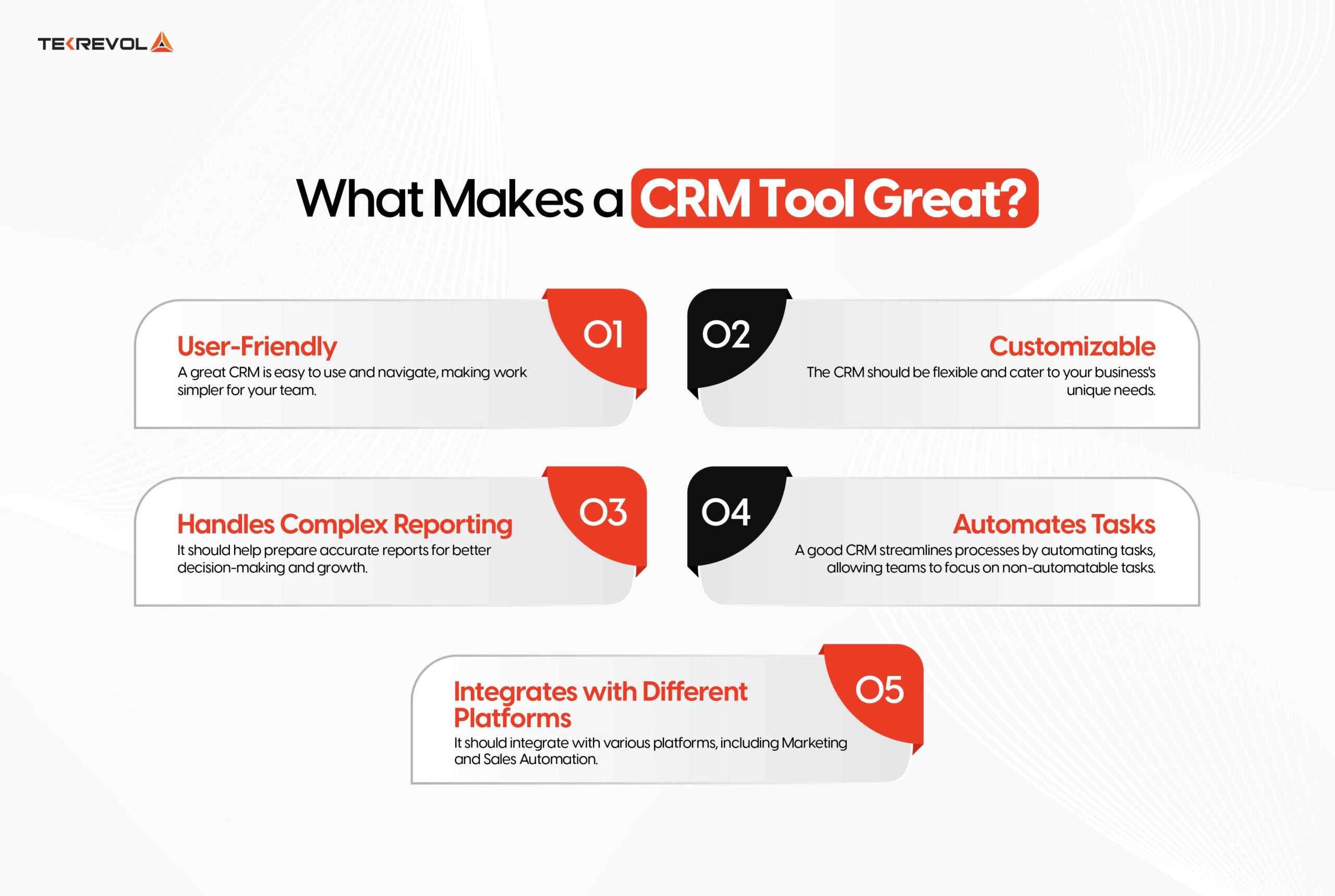
The Key Benefits of Using a CRM System?
Leveraging a custom CRM system offers numerous advantages that can transform business operations and drive growth:
- Top of Form
- Bottom of Form
1. Streamlined Sales Process
From lead generation to conversion, by leveraging automated sales workflows, your internal team can streamline the entire process of sales, improving efficiency and accuracy by several folds.
2. Enhanced Customer Relationships
CRMs provide a centralized platform to manage all customer-related data. This allows companies to ensure effective customer relationship management and improve customer satisfaction by constantly analyzing data to make decisions.
By having a comprehensive and holistic view of customer data such as history, preferences, interactions, demands, and more, businesses can tailor their communication and approach to providing services and solutions to them.
The focused approach to relationship management fosters trust and encourages long-term customer retention.
3. Data-Driven Insights
As discussed earlier, CRMs empower business professionals with powerful analytics and reporting tools that provide insights into customer behaviors, and sales metrics, and improve marketing effectiveness.
This allows companies to ensure effective targeting of customers which improves the overall revenue of the business.
4. Increased Productivity and Efficiency
By automating routine tasks, CRMs free up time for employees to focus on more strategic activities. This enhances the overall productivity of the employees.
Furthermore, streamlined and managed workflows and the reduction of manual laborious tasks minimize the risk of errors and save valuable time for internal teams
Additionally, real-time access to customer information and analytics enables quicker decision-making and more effective team collaboration. Hence, the cost of CRM development becomes worth it after you see the value they provide to businesses.
5. Improved Customer Retention
CRMs enable personalized communication and follow-ups, helping to nurture relationships with customers and significantly improving customer retention rates.
6. Enhanced Coordination & Collaboration
A custom CRM system becomes your end-to-end source of customer data, facilitating better, more informed, and more reliable collaboration and communication across different departments of your company.
7. Targeted Marketing Campaigns
CRMs allow for the segmentation of customers based on various criteria, enabling more targeted and effective marketing campaigns.
By analyzing customer data, businesses can tailor their messages to specific audiences, increasing engagement and conversion rates.
Additionally, automated marketing features within CRMs can streamline campaign management, saving time and resources.
8. Centralized Data Management
All customer information is stored in one place, ensuring data accuracy and easy access for all relevant stakeholders.
9. Scalability
Modern CRMs are scalable, meaning they can grow alongside the business, adapting to increased data loads and more complex processes.
10. Regulatory Compliance
Many CRM systems include features that help businesses comply with regulations such as GDPR, ensuring that customer data is managed legally and ethically.
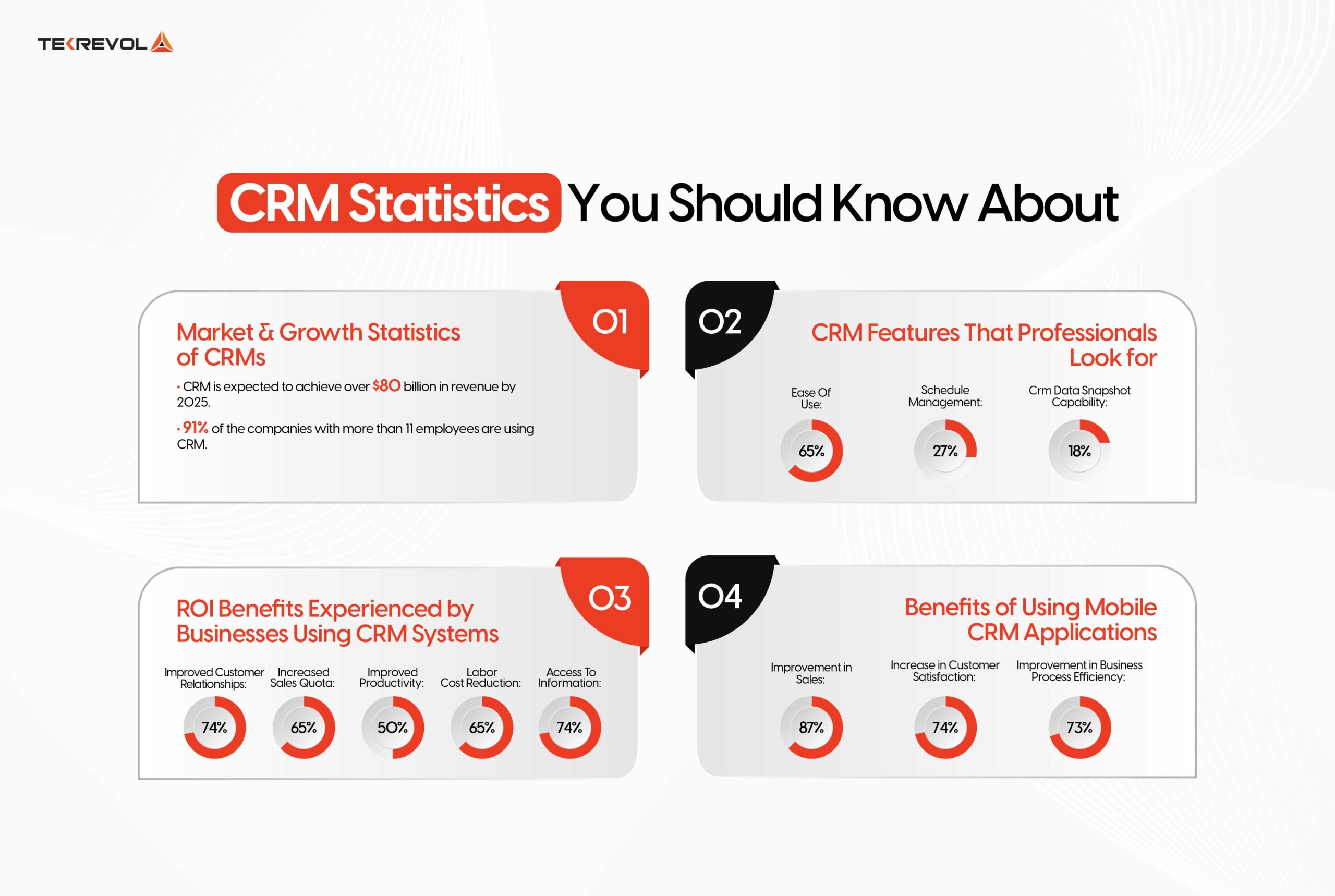
Concluding How Much Does It Cost to Build a CRM System in 2024
In conclusion, I believe I’ve answered your question ‘How much does CRM cost?’ effectively. building a custom CRM system in 2024 requires consideration of costs, benefits, and strategic planning.
Understanding the factors affecting the CRM development costs, exploring cost-effective strategies and best practices, and comparing the pros and cons of custom CRM are essential steps in the decision-making process.
Custom CRMs offer purpose-built solutions that can significantly enhance business operations, but they come with higher upfront costs and ongoing maintenance requirements.
However, by leveraging the guidance and insights provided in this article, businesses can make informed decisions, ensuring their CRM development cost brings them the value they need and drives long-term growth and efficiency in their internal business operations.
Whether opting for a startup-friendly, standard / SMB-level, or enterprise-grade CRM, your ultimate goal should always be to create a CRM system that aligns with business objectives and supports your business operations.
Looking forward, technology and customer expectations are set to evolve in the future, and to learn about the changing needs and demands, you need to harness the power of data.
That is exactly where custom CRMs enter the fray. Custom CRMs allow businesses to adapt to the changing customer demands and stay relevant in a highly competitive business world.
Moreover, investing in features such as AI, data analytics, automation, and seamless integration with other internal or external tools and databases can keep a business ahead of the competition and ready to seize new opportunities in the market.
Ultimately, deciding to develop a custom CRM in 2024 should be about understanding what the business needs to succeed, how customers want to interact, and how technology can support these goals. By taking this approach, businesses can set themselves up for growth, efficiency, and success in the years ahead.
- Optimize Your CRM Today
- Leverage our expertise to implement powerful CRM tools that drive business success.

 4414 Views
4414 Views July 11, 2024
July 11, 2024